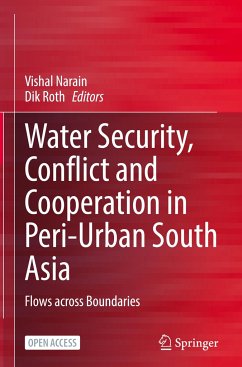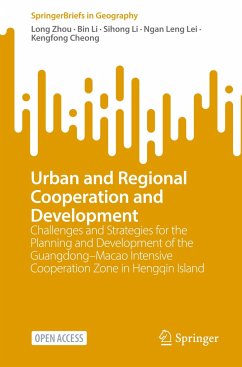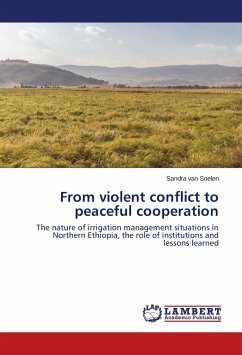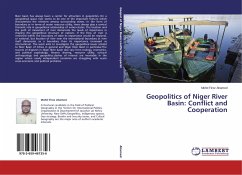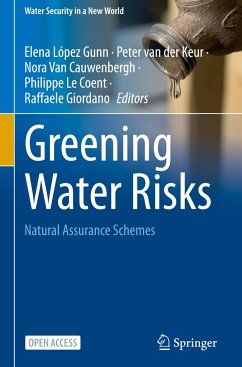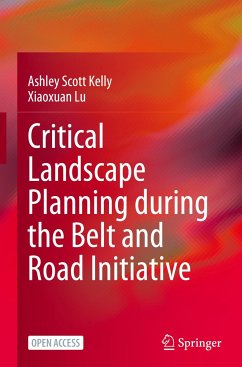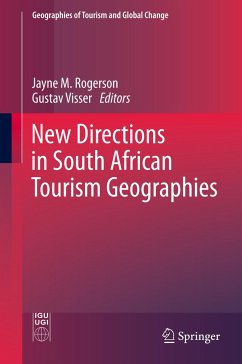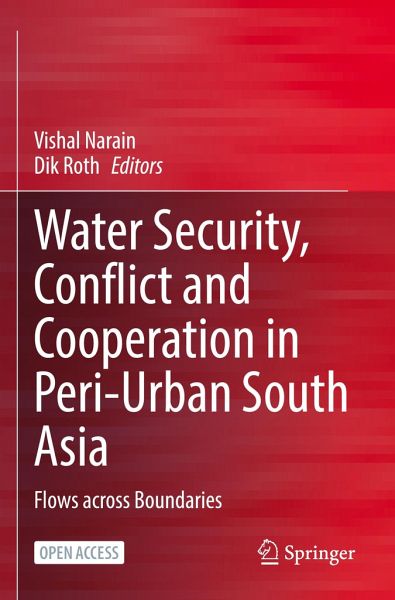
Water Security, Conflict and Cooperation in Peri-Urban South Asia
Flows across Boundaries
Herausgegeben: Narain, Vishal; Roth, Dik
Versandkostenfrei!
Versandfertig in 6-10 Tagen
31,99 €
inkl. MwSt.

PAYBACK Punkte
16 °P sammeln!
This open access book explores the implications of urbanization in South Asia for water (in-) security in the peri-urban spaces of Dhaka and Khulna in Bangladesh, Bengaluru, Gurugram, Hyderabad, Kolkata and Pune in India, and Kathmandu Valley in Nepal. The book looks into specifically peri-urban water security issues in a context of rapid urbanization and social-environmental changes, including the changing climate and its emerging impacts. It demonstrates how urbanization processes change water flows between rural and urban areas, the implications of this processes for the water security of p...
This open access book explores the implications of urbanization in South Asia for water (in-) security in the peri-urban spaces of Dhaka and Khulna in Bangladesh, Bengaluru, Gurugram, Hyderabad, Kolkata and Pune in India, and Kathmandu Valley in Nepal. The book looks into specifically peri-urban water security issues in a context of rapid urbanization and social-environmental changes, including the changing climate and its emerging impacts. It demonstrates how urbanization processes change water flows between rural and urban areas, the implications of this processes for the water security of peri-urban populations, and how new institutions and technologies develop to mediate the relationships between peri-urban communities and water. The book seeks to further the debate on peri-urban water security, including what constitutes the peri-urban, socially differentiated access to water in peri-urban spaces, interventions for improving water access, and emerging forms of cooperation and conflict related to water access in a context of urbanization and climate change. As such, this book is an interesting read for academics with various disciplinary backgrounds, professionals working in the worlds of national and international policy, NGOs, activist groups, research and development institutes, and individual readers interested in water security and urbanization.



